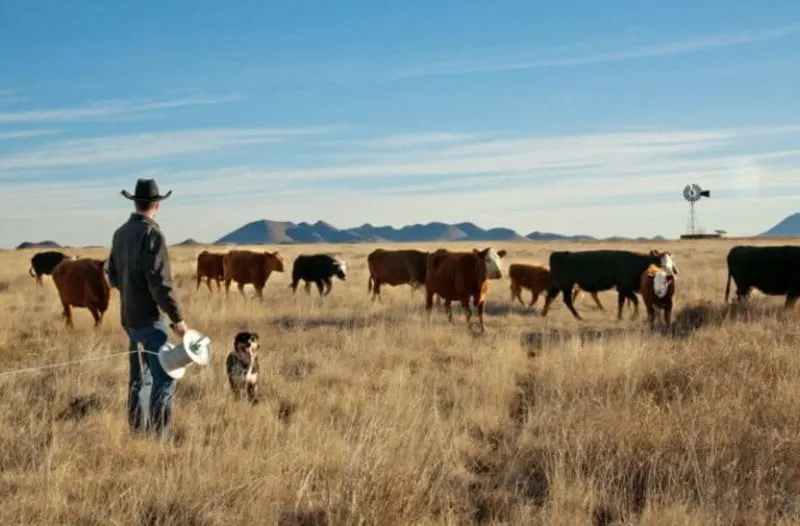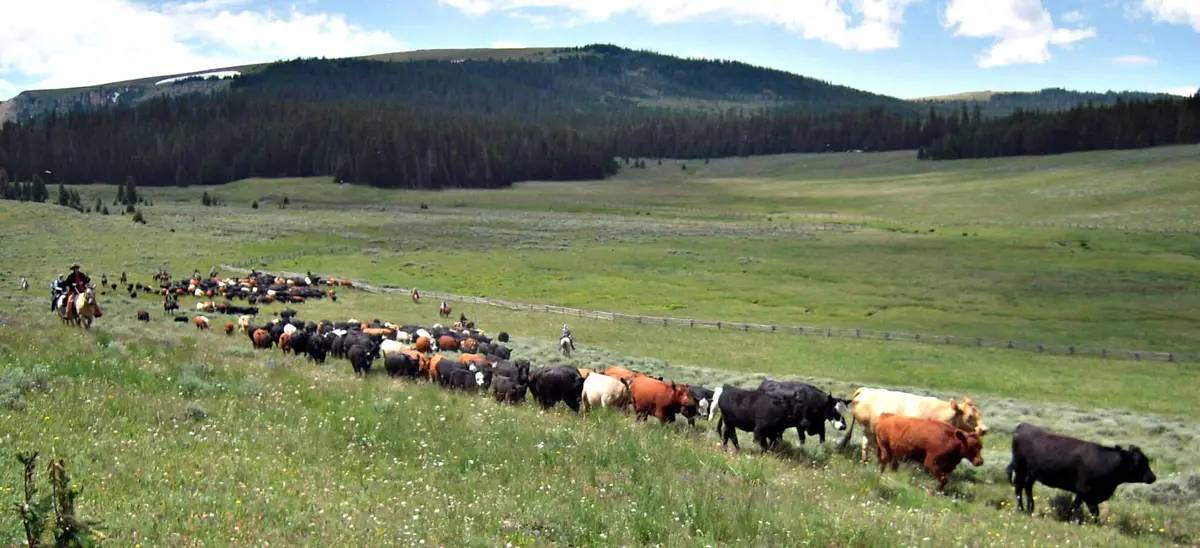Viewpoint: Environmental Working Group on the wrong side of science with simplistic attack on animal agriculture’s impact on climate
Viewpoint: Environmental Working Group on the wrong side of science with simplistic attack on animal agriculture’s impact on climate


If we stopped burning fossil fuels tomorrow, scientists have calculated that global emissions from agriculture would still cause us to blow past the goals we’ve set to avoid the most catastrophic effects of the climate crisis. So even if we switch to electric vehicles, make buildings more energy efficient, and power our homes and businesses with renewable energy, we will still face a climate catastrophe, thanks in part to agriculture.
—Geoff Horsfield, Meat’s math problem is exacerbating the climate crisis
While there is no denying that animal agriculture can take a serious toll on the environment, EWG’s analysis is full of misleading claims about methane emissions and the sustainability of “alternative” proteins like plant-based meat. A more sober assessment of the evidence shows that animal agriculture is growing more sustainable, just like the energy and transportation sectors.
Keeping things in context
Let’s begin with a few basic facts. The EPA reported in 2019 that farming generates nine percent of America’s greenhouse gas emissions. Animal agriculture’s contribution to this total is roughly four percent, but eliminating every farmed animal in the US would decrease our total emissions by less than three percent, according to a 2018 study published in PNAS.
One has to wonder why EWG is preoccupied with these relatively insignificant reductions. Whatever the reason, there’s more at stake than GHG emissions. As UC Davis animal geneticist Alison Van Eenennaam has pointed out, we get a lot of useful products and services from cows:
More than just hamburgers, [cattle] autonomously harvest forage on marginal lands to produce 66 million tons of beef, 6.5 billion tons of milk, macro- and micronutrients, fibers, hides, skins, fertilizer and fuel; and are used for transportation, draft power, a source of income, and a form of banking for millions of smallholder farmers in developing countries.
A soy burger has nowhere near the same level of utility. But even if it did, we couldn’t just replace the animals that went out of production with plants. “Grass and rangelands make up 80 percent of the 2.5 billion hectares of land used for livestock production,” Van Eenennaam added, “and most of this land is considered too marginal to be convertible to cropland.”
Sustainability increasing
Here’s another striking detail EWG left out of its analysis: the amount of land dedicated to raising animals for food has plummeted in recent years. “According to data from the Food and Agriculture Organization of the United Nations,” the Breakthrough Institute reported in 2019, “there are 140 million fewer hectares of pasture today than there were in 2000, an area roughly the size of Peru.” Significantly, this decline was accompanied by increases in meat and milk production, 13 and 32 percent, respectively.

Pasture in many developed countries actually peaked in the 1960s, Breakthrough explained. The more encouraging conclusion is that developing countries worldwide are now seeing similar pasture declines as farmers begin raising more animals on the same amount of land, and each animal produces more meat and milk.
Technological innovations that improve animal health, produce better feed, and optimize the animals themselves for food production are key to further boosting this global sustainability trend. You can read the Breakthrough report to see the details, but all these improvements produce more with less. Feeding cows energy-dense but balanced diets means committing less land to feed production; healthy cows produce more than sick ones, and so do animals bred to thrive in different environmental conditions.
Transgenic (GMO) and gene-editing technology can contribute to improvements in feed efficiency, animal health, and regional adaptation. But you’ll never guess which organic industry-funded activist group opposes these technologies: the Environmental Working Group.
Most people agree that fewer GHG emissions are desirable, but EWG has offered an incomplete analysis of the problem we face, most importantly by ignoring viable solutions. Plant-based proteins are an important development; however, producing them on a scale that would significantly alter global food consumption would require a lot of energy, and this means encouraging people to eat more Beyond Burgers isn’t the simple answer many have suggested.
The good news is that we don’t have to follow EWG’s lead. We can look at all the data and draw a more sensible conclusion: food production has environmental costs, but these are dropping as technology makes farming more sustainable.
Cameron J. English is the director of bio-sciences at the American Council on Science and Health. Visit his website and follow ACSH on Twitter @ACSHorg
A version of this article was originally posted at the American Council on Science and Health and is reposted here with permission. The American Council on Science and Health can be found on Twitter @ACSHorg

 | Videos | More... |

Video: Nuclear energy will destroy us? Global warming is an existential threat? Chemicals are massacring bees? Donate to the Green Industrial Complex!
 | Bees & Pollinators | More... |

GLP podcast: Science journalism is a mess. Here’s how to fix it

Mosquito massacre: Can we safely tackle malaria with a CRISPR gene drive?

Are we facing an ‘Insect Apocalypse’ caused by ‘intensive, industrial’ farming and agricultural chemicals? The media say yes; Science says ‘no’
 | Infographics | More... |

Infographic: Global regulatory and health research agencies on whether glyphosate causes cancer
 | GMO FAQs | More... |

Why is there controversy over GMO foods but not GMO drugs?

How are GMOs labeled around the world?

How does genetic engineering differ from conventional breeding?
 | GLP Profiles | More... |

Alex Jones: Right-wing conspiracy theorist stokes fear of GMOs, pesticides to sell ‘health supplements’




 Viewpoint — Fact checking MAHA mythmakers: How wellness influencers and RFK, Jr. undermine American science and health
Viewpoint — Fact checking MAHA mythmakers: How wellness influencers and RFK, Jr. undermine American science and health Viewpoint: Video — Big Solar is gobbling up productive agricultural land and hurting farmers yet providing little energy or sustainabilty gains
Viewpoint: Video — Big Solar is gobbling up productive agricultural land and hurting farmers yet providing little energy or sustainabilty gains Trust issues: What happens when therapists use ChatGPT?
Trust issues: What happens when therapists use ChatGPT? Fighting deforestation with CO2: Biotechnology breakthrough creates sustainable palm oil alternative for cosmetics
Fighting deforestation with CO2: Biotechnology breakthrough creates sustainable palm oil alternative for cosmetics California, Washington, Oregon forge immunization alliance to safeguard vaccine access against federal undermining
California, Washington, Oregon forge immunization alliance to safeguard vaccine access against federal undermining 30-year-old tomato line shows genetic resistance to devastating virus
30-year-old tomato line shows genetic resistance to devastating virus The free-range chicken dilemma: Better for birds, but with substantial costs
The free-range chicken dilemma: Better for birds, but with substantial costs ‘You have to treat the brain first’: Rethinking chronic pain with Sanjay Gupta
‘You have to treat the brain first’: Rethinking chronic pain with Sanjay Gupta
